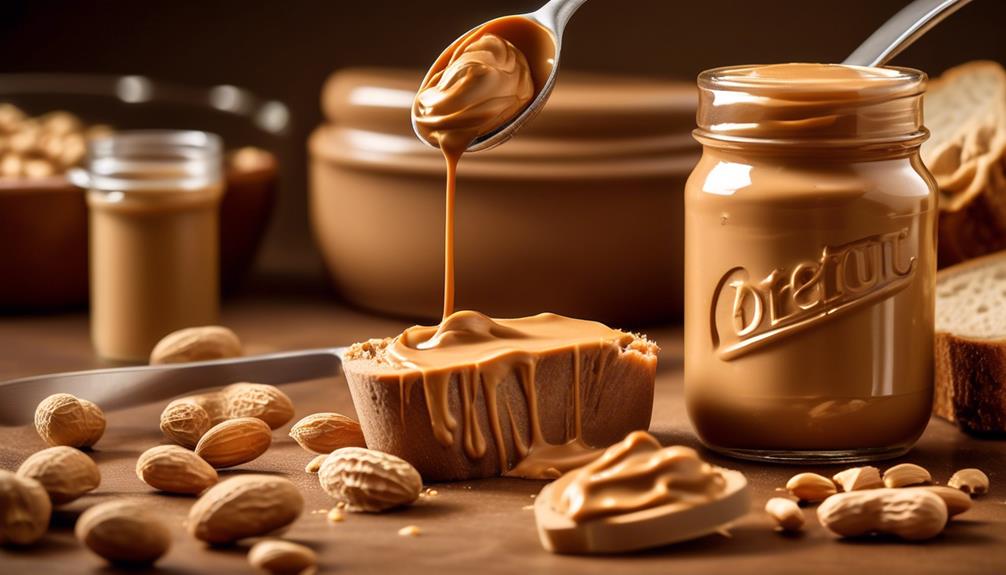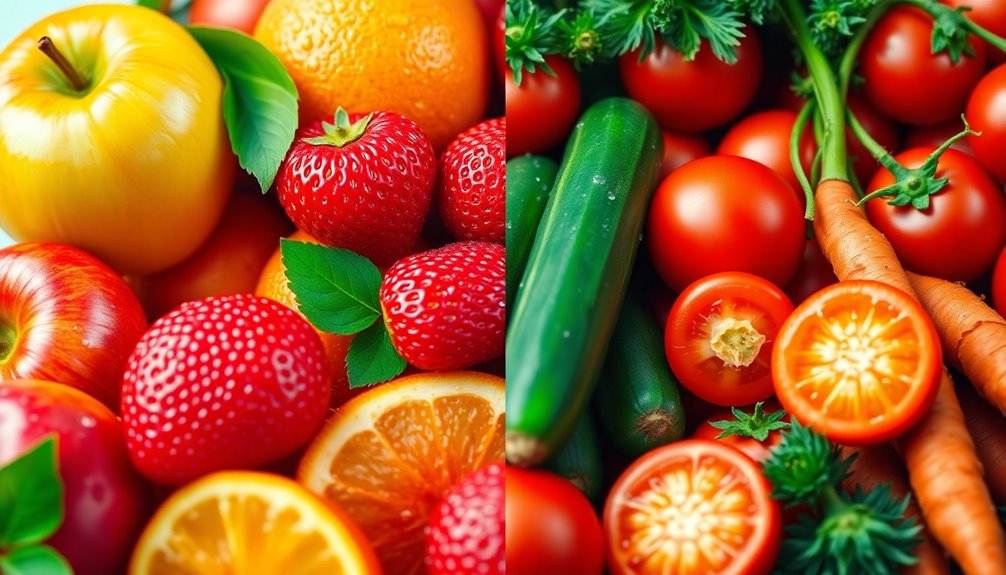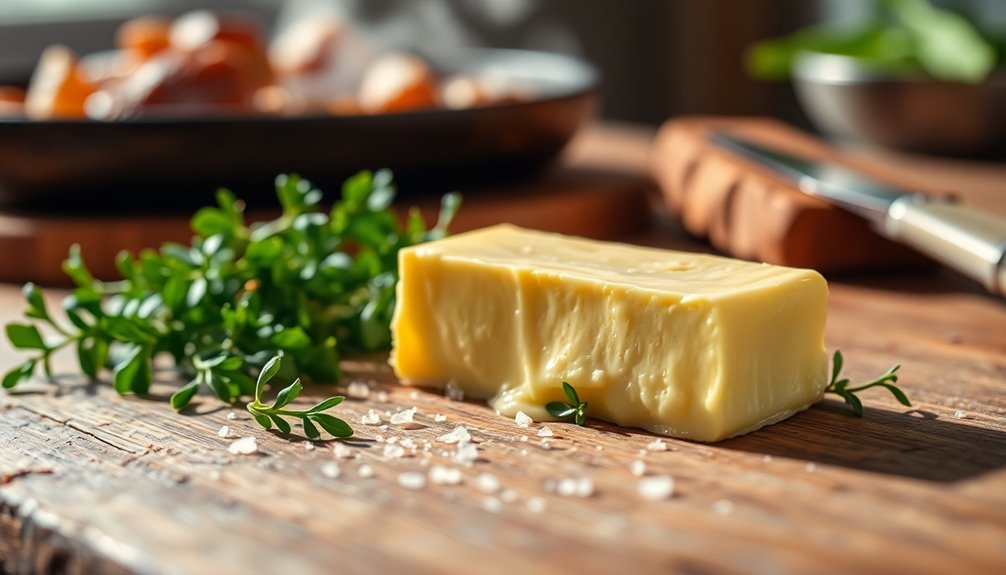Contemplating the potential of peanut butter, we have discovered a method to turn this traditional spread into a healthier choice. By concentrating on easy substitutions and thoughtful decisions, we have unearthed some tips to enhance the nutritional value of this beloved pantry essential.
But how exactly can we turn peanut butter into a healthier choice without sacrificing its creamy, nutty goodness? Let's explore the secrets to making peanut butter a nutritious addition to our diets.
Key Takeaways
- Choose natural peanut butter with minimal ingredients and no added sugars or oils.
- Opt for smooth peanut butter made from organic roasted peanuts for better flavor and quality.
- Look for options with low sodium or no added salt to control salt intake.
- Homemade peanut butter ensures a pure, healthy spread without added sugars, oils, or preservatives.
Health Benefits of Peanut Butter
Peanut butter offers a wide array of health benefits, making it a nutritious addition to a well-balanced diet. It's a rich source of plant-based protein, providing 8 grams per serving, which is essential for muscle repair and growth.
The heart-healthy monounsaturated fats in peanut butter, similar to those found in olive oil, can help lower the risk of heart disease. Additionally, it's high in Vitamin E, supporting immune function and contributing to healthy skin.
The folate content in peanut butter is important, especially for women during pregnancy, as it helps prevent neural tube defects in babies. Furthermore, it provides essential minerals like phosphorus and magnesium, crucial for bone health and metabolism.
With all these health benefits, making your own healthy homemade peanut butter is a great idea. A simple recipe involves blending roasted peanuts in a food processor until smooth and creamy. This delicious homemade peanut butter can easily be incorporated into your diet to reap its health benefits.
Choosing the Right Peanut Butter

When selecting peanut butter, it's important to prioritize natural varieties with minimal ingredients and no added sugars or oils. Opt for smooth peanut butter made from organic roasted peanuts to ensure better flavor and quality. Look for options with low sodium or no added salt to control your salt intake. Additionally, choosing peanut butter with no hydrogenated oils is crucial to avoid unhealthy trans fats.
Consider making homemade peanut butter using a food processor or high-powered blender for full control over the ingredients and customization. This way, you can ensure that you're getting healthy fats and avoiding unnecessary additives. If you prefer the convenience of store-bought peanut butter, read the labels carefully to identify options that align with these criteria.
Whether you opt for a low-carb variety or crave the creaminess of traditional peanut butter, making informed choices about the peanut butter you consume can significantly impact your overall health.
Homemade Peanut Butter Recipes

For a healthier alternative to store-bought options, consider making your own peanut butter at home using just one ingredient: roasted peanuts. Making homemade peanut butter is an easy and satisfying way to ensure you're consuming a pure, healthy peanut butter without any added sugars, oils, or preservatives. All you need are raw peanuts and a food processor to create a delicious and nutritious spread. Here's a simple recipe to get you started:
| Ingredients | Instructions |
|---|---|
| 2 cups of raw peanuts | 1. Preheat oven to 350°F |
| 2. Spread peanuts on a baking sheet | |
| 3. Roast for 10-12 minutes, until golden | |
| 4. Let cool, then remove skins | |
| 5. Place peanuts in a food processor | |
| 6. Blend until smooth, scraping down the sides as needed | |
| 7. Store in an airtight container |
Adding Nutritional Boosters

To amplify the nutritional value of your homemade peanut butter, consider incorporating additional ingredients such as chia seeds, flaxseed, or hemp seeds for a boost in fiber and omega-3 content. These nutritional boosters not only enhance the texture but also contribute to the overall health benefits of your peanut butter.
Here are three additional ingredients to consider incorporating into your homemade peanut butter:
- Protein Powder or Collagen Peptides: Adding protein powder or collagen peptides can significantly increase the protein content of your peanut butter, making it a great option for those looking to increase their protein intake.
- Raw Cacao Powder or Matcha Powder: For a boost in antioxidants, consider adding a small amount of raw cacao powder or matcha powder to your peanut butter mixture. This not only enhances the flavor but also adds a nutritional punch.
- Honey or Pure Maple Syrup: To sweeten your peanut butter naturally and add extra nutrients, mix in a small amount of honey or pure maple syrup. However, it's essential to add these sweeteners in moderation to keep the overall sugar content in check.
Creative Ways to Use Peanut Butter

Consider incorporating peanut butter into your daily meals and snacks with these creative and nutritious ideas.
One way to utilize peanut butter is to make a savory Thai peanut sauce for dipping or drizzling over stir-fries and noodles. Simply mix peanut butter with a few flavorful ingredients like soy sauce, lime juice, and a hint of chili for a delicious and healthy sauce.
Another creative use is to create a rich and creamy peanut butter smoothie by blending it with bananas, almond milk, and a touch of honey for a satisfying snack or breakfast option.
Additionally, adding a dollop of peanut butter to your morning oatmeal or yogurt can provide a protein boost and extra flavor to kickstart your day.
For a convenient and nutritious snack, consider using peanut butter as a base for homemade energy balls or protein bars.
You can also incorporate peanut butter into savory dishes like marinades for grilled chicken or as a flavorful spread in sandwiches.
These creative ways to use peanut butter can help you enjoy its health benefits in various delicious and satisfying ways.
Frequently Asked Questions
What Is the Healthiest Way to Eat Peanut Butter?
The healthiest way to eat peanut butter is to choose organic options and make it at home without adding sugar or preservatives.
Roasted peanuts can enhance the flavor, and experimenting with ingredients like cocoa powder or cinnamon adds variety.
Storing homemade peanut butter in the fridge ensures a longer shelf life and firmer consistency.
These simple choices can make a big difference in enjoying a healthier peanut butter.
How Healthy Is Homemade Peanut Butter?
Homemade peanut butter is incredibly healthy. It's a great source of plant-based protein, healthy fats, and essential nutrients like Vitamin E, folate, phosphorus, and magnesium.
Making it at home lets us control added salt and sugar, making it a healthier option. We can also customize flavors and textures with ingredients like cocoa powder or liquid sweeteners.
Storing it properly helps maintain freshness. Plus, homemade peanut butter can be tailored to various dietary preferences.
Is It Healthy to Eat Peanut Butter Every Day?
Yes, it's healthy to eat peanut butter every day in moderation. It provides essential nutrients like protein and healthy fats. Natural options without added sugars or oils are best. These offer maximum health benefits.
Pairing it with whole grains, fruits, or vegetables creates a balanced, nutritious meal or snack. Just be mindful of portion sizes to maintain a balanced diet.
Is Homemade Peanut Butter Healthier Than Store Bought?
We found that homemade peanut butter is healthier than store-bought options.
We made a batch using only roasted, unsalted peanuts, controlling the ingredients for a healthier product.
This allowed us to avoid added sugars and preservatives commonly found in store-bought peanut butter.
Plus, homemade peanut butter lets you adjust the texture and consistency to your liking, ensuring a healthier and tastier option.
Conclusion
In conclusion, making peanut butter healthy is simple and delicious.
By choosing the right ingredients and avoiding additives, homemade peanut butter can be a nutritious addition to your diet.
Whether you enjoy it on toast, in smoothies, or as a dip for fruits and veggies, homemade peanut butter provides a tasty way to boost your protein and healthy fat intake.
So, why settle for store-bought when you can easily make a healthier version at home?










